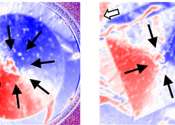Would astronauts' kidneys survive a roundtrip to Mars?
The structure and function of the kidneys is altered by space flight, with galactic radiation causing permanent damage that would jeopardize any mission to Mars, according to a new study led by researchers from UCL.









